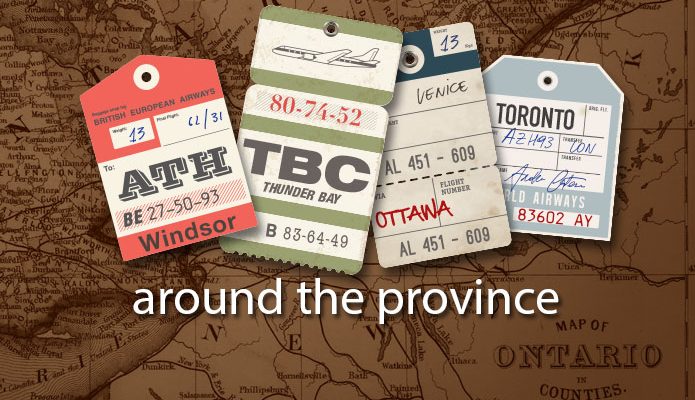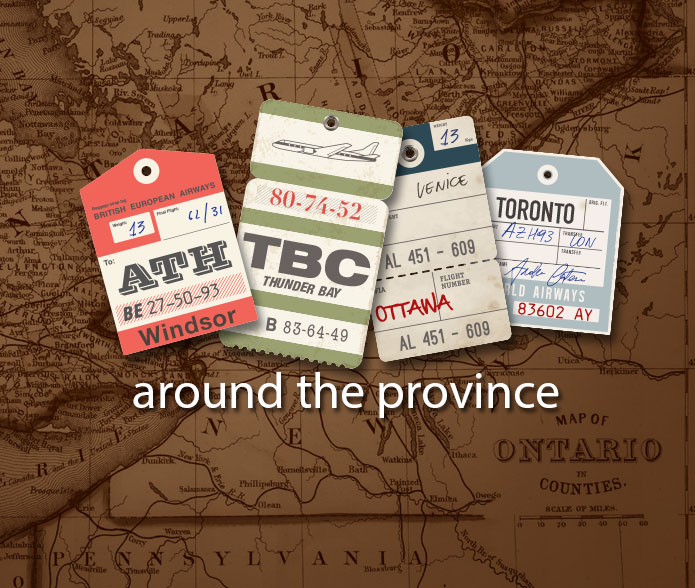Learn about a librarian’s research into 2SLGBTQ+ Libraries and Archives, preserving queer history, and current activism efforts.

Touting your own horn: Advocacy for academic libraries
Advocacy for academic libraries is becoming increasingly necessary in today’s world—we need to tout (or is it toot?) our own horns and make ourselves heard at a time when many of us are facing budget cutbacks, staff reductions, and the impact of the tanking loonie on our collection development.
But what is advocacy and how do we do it? Last fall, OCULA put this question to three librarians who practice advocacy in different ways and asked them to share their ideas, techniques and strategies at its annual fall conference. Held as a webinar on November 17, 2015, the conference included panelists Myron Groover, Angela Henshilwood and Alain Lamothe.
Groover is the archives and rare books librarian at McMaster University Library. He publicly advocates on behalf of libraries, librarians and access to information via his blog Bibliocracy—sharing his sometimes acerbic, usually political and sometimes “deranged” thoughts on a range of issues from cuts to Library and Archives Canada (LAC) to the Trans-Pacific Partnership.
As Groover explains on Bibliocracy, his role as an advocate is almost an imperative now. Responding to changes at LAC in 2012, he wrote “something inside me broke, and I started screaming about it on the internet, and one thing led to another and before I knew what was happening I was chairing the BCLA information policy committee.”
As the head of collections and technical services at Laurentian University, Alain Lamothe’s more “in house” approach to advocacy led to the successful increase in his library’s budget. By demonstrating the crucial role that the library could play in achieving institutional goals—in particular, a higher ranking in the Maclean’s annual report on universities—he and his team were able to secure higher levels of funding for key operational areas.
Angela Henshilwood is a faculty liaison and instruction librarian at the University of Toronto and the OCULA representative on the OLA Advocacy Committee. While she acknowledges that advocacy can mean many things, she has learned that at OLA it is defined as “building lasting and collegial relationships” with many individuals and stakeholders. “Our job is to ensure that libraries have the support and recognition they deserve as important cultural and educational hubs.”
Henshilwood finds her work on the Advocacy Committee satisfying and the committee has been able to respond to a number of issues through programs such as Library Day at Queen’s Park.
When it comes to touting and tooting the important role that academic libraries play in institutional strength and success, it’s clear that we have a number of strategies and tools at our disposal and in some ways, we are natural advocates. As Sharon Munro, OCULA past councillor-at-large and conference co-planner, points out, advocacy requires excellent communication skills—which we already put to use in our liaison work across our diverse campuses.
And we will continue to have opportunities to use these skills because advocacy is a hot topic that is not going to cool off anytime soon. “Governments give funding to the university as a whole,” says OCULA past president and fall conference co-planner Sophia Apostol. “There’s always going to be a big question around how librarians can advocate from within their institutions.”
Apostol is very pleased that the conference was in a webinar format this past fall as it was a way to be inclusive, try out some online learning and make it easy for people to travel—many institutions took the option of site-wide access so that people could “meet, talk and watch together. It felt like the right time to advocate for something different!”
Martha Attridge Bufton, MA, MLIS candidate, is a subject specialist at the Carleton University Library and the third co-planner for the OCULA 2015 Fall Conference. She can be reached at martha.attridgebufton [at] carleton.ca.


